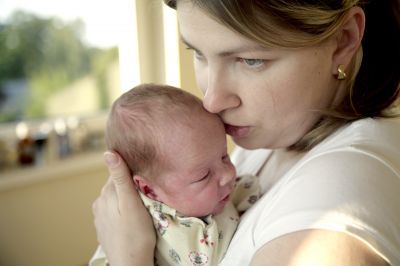Your support helps us to tell the story
From reproductive rights to climate change to Big Tech, The Independent is on the ground when the story is developing. Whether it's investigating the financials of Elon Musk's pro-Trump PAC or producing our latest documentary, 'The A Word', which shines a light on the American women fighting for reproductive rights, we know how important it is to parse out the facts from the messaging.
At such a critical moment in US history, we need reporters on the ground. Your donation allows us to keep sending journalists to speak to both sides of the story.
The Independent is trusted by Americans across the entire political spectrum. And unlike many other quality news outlets, we choose not to lock Americans out of our reporting and analysis with paywalls. We believe quality journalism should be available to everyone, paid for by those who can afford it.
Your support makes all the difference.A "world's first" clinical trial has shown that the use of "Health Visitors" offering psychological support to new moms after childbirth keeps postpartum depression away.
Terry Brugha, FRCPsych, professor of psychiatry in the health sciences department at the College of Medicine, Biological Sciences and Psychology, University of Leicester, led the study and explained to Relaxnews on August 17 that health visitors "work within the National Health Services" in the UK and may be comparable in training to "public health nurses who provide home based postnatal care in some other countries."
This breakthrough study published in the August 17 edition of Psychological Medicine, a Cambridge University Press journal, "examined the effect of a new 8 day training course" that included "a basic and simple form of the training given to psychologsts and psychiatrists" in identifying, managing and preventing postpartum depression. "This training is unique to this study. It has not been use elsewhere in the UK."
New moms with health visitor care after childbirth were able to "prevent the development of depression over the following year" whereas "women receiving usual care were significantly more likely to develop depression six months after childbirth," noted Brugha.
The authors also highlighted the following findings adapted from a University announcement:
- Intervention women, who had a Health Visitor with additional mental health training, were 30% less likely to have developed depression six months after child birth compared to control women receiving usual care.
- These improvements continued throughout the eighteen month follow-up. Even women who had few or no complaints of depression at six weeks following child birth appeared to benefit later if their Health Visitor had additional training.
- If the Health Visitor with additional training discussed the results of depression screening with the mother at six weeks it appears there was even more benefit and less risk of developing later depression.
- There was evidence that the training programme was also cost effective even when the cost of extra training was taken into account. Health visitors with the new training were found to spend less general time with mothers but more time with those who needed emotional support.
- In discussing the findings the investigators considered that the quality of the ongoing relationship between the Health Visitor and mother, which can continue until the child starts to attend school, may have provided the mother with a reliable confidant she knew she could turn to later if necessary. It may also have helped to know that she would not have to discuss emotional concerns with a different person such as her doctor or a psychologist and that access to help would be easy and non stigmatizing.
"We would like to conduct similar research designed primarily to be prevention research. It would be best that this happens in a different place (or indeed good if this happened in a different country). We would also like to conduct interviews with mothers and health visitors in such a study to help us better understand how this intervention works," added Brugha.
The World Health Organisation (WHO) estimates depression affects "121 million people worldwide" and "will be a leading cause of disability due to ill health by 2020" with "fewer than 25 % of those affected have access to effective treatments."
The University announcement stated that, "although depression can be treated effectively with medication and psychological approaches there is no evidence that rates of depression have fallen since these treatments became available. It is also often the case that once treatment is stopped the condition can relapse."
If you have just had a baby and do not have a mental or emotional support network, you may want to listen to "Recovering from Delivery" and audio article by KidsHealth.org explaining the difference between postpartum depression and 'baby blues': http://kidshealth.org/parent/pregnancy_newborn/home/recovering_delivery.html#
Also the British e-zine SoFeminine.co.uk's parenting section offer tips on "how to beat the baby blues": http://www.sofeminine.co.uk/mag/mother/d787/x7126.html
Full study, "Universal prevention of depression in women postnatally: cluster randomized trial evidence in primary care": http://journals.cambridge.org/action/displayAbstract?fromPage=online&aid=7873832

Join our commenting forum
Join thought-provoking conversations, follow other Independent readers and see their replies
Comments